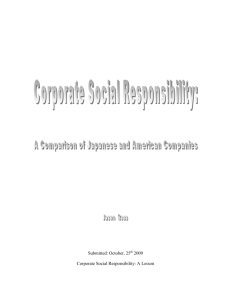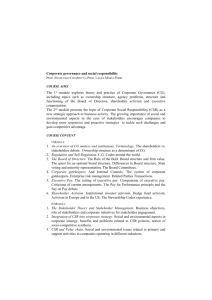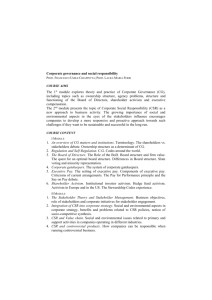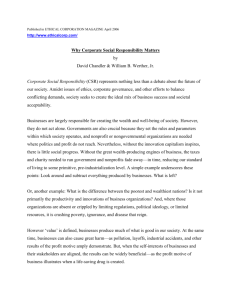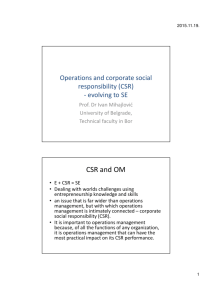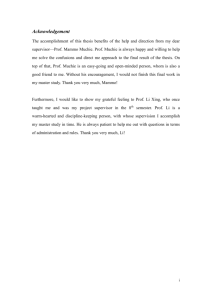Based on different comments about the corporate social
advertisement
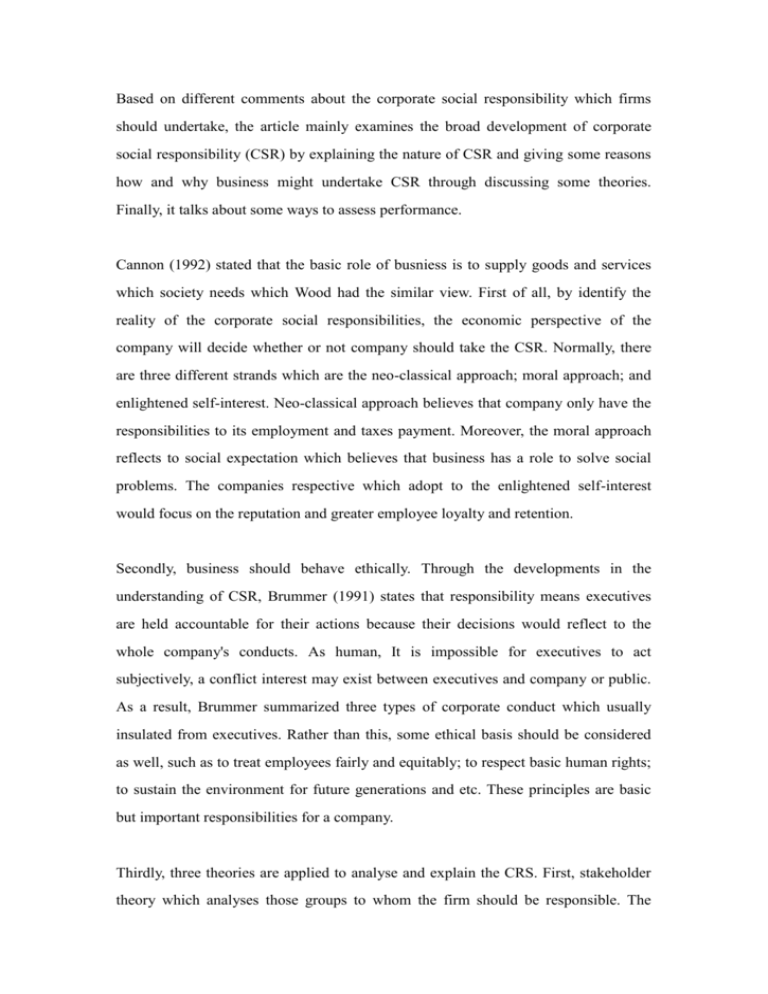
Based on different comments about the corporate social responsibility which firms should undertake, the article mainly examines the broad development of corporate social responsibility (CSR) by explaining the nature of CSR and giving some reasons how and why business might undertake CSR through discussing some theories. Finally, it talks about some ways to assess performance. Cannon (1992) stated that the basic role of busniess is to supply goods and services which society needs which Wood had the similar view. First of all, by identify the reality of the corporate social responsibilities, the economic perspective of the company will decide whether or not company should take the CSR. Normally, there are three different strands which are the neo-classical approach; moral approach; and enlightened self-interest. Neo-classical approach believes that company only have the responsibilities to its employment and taxes payment. Moreover, the moral approach reflects to social expectation which believes that business has a role to solve social problems. The companies respective which adopt to the enlightened self-interest would focus on the reputation and greater employee loyalty and retention. Secondly, business should behave ethically. Through the developments in the understanding of CSR, Brummer (1991) states that responsibility means executives are held accountable for their actions because their decisions would reflect to the whole company's conducts. As human, It is impossible for executives to act subjectively, a conflict interest may exist between executives and company or public. As a result, Brummer summarized three types of corporate conduct which usually insulated from executives. Rather than this, some ethical basis should be considered as well, such as to treat employees fairly and equitably; to respect basic human rights; to sustain the environment for future generations and etc. These principles are basic but important responsibilities for a company. Thirdly, three theories are applied to analyse and explain the CRS. First, stakeholder theory which analyses those groups to whom the firm should be responsible. The central issue is whether stakeholder is part of the motivation for business to be responsible. It divided stakeholders into primary and secondary stakeholders to determine whether the stakeholder theory is a normative theory based upon largely ethical propositions or a descriptive theory. Second, social contracts theory which determine the relationship between social contracts reflects a company's responsibilities. The expectation is that business provide some support to its local community. The last one is legitimacy theory which has three types - pragmatic; moral; and cognitive. These three theories bring out different social responsibilities for companies. Last but not the least, the literature on CRS and the theories come together in assessing corporate social performance. Under the CRS which published by legitimacy, the management of a company would follow the CRS, as a result, the social impacts, policies and programs will help the company to form a good behaviour to take those corporate social responsibilities. In conclusion, CSR is the continuing commitment by business to behave ethically and contribute to economic development while improving the quality if life of the workforce and their families as well as the local community and society. As a result, the corporate social responsibilities are very important for companies to undertake.
